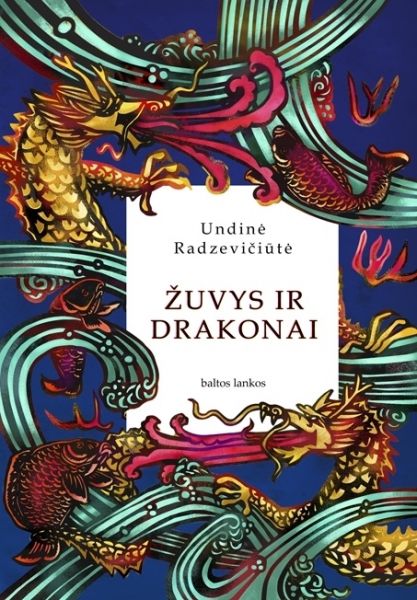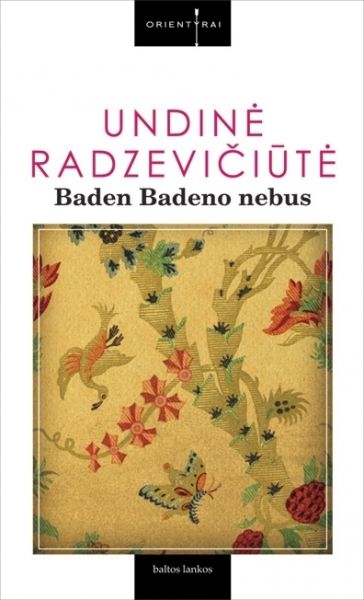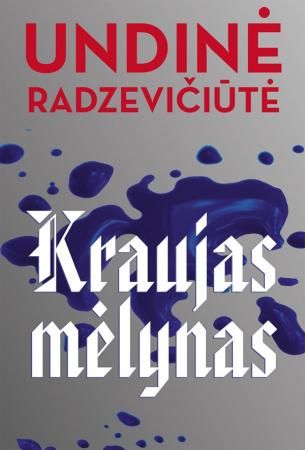 Fishes and Dragons
Fishes and Dragons
Undinė Radzevičiūtė

Undinė Radzevičiūtė (1967) is the most un-Lithuanian of Lithuanian writers. She maintains an aloof, almost arrogant stance, if she ever honors the public with an appearance. She does not mix with the literary world, and on the cover of her first book she wrote a piece openly criticising the Lithuanian language and anything that has traditionally been considered a value of Lithuanian literature. However, she has much to offer for her iconoclastic antics. She was among the first to offer a broader, more cosmopolitan definition of the national identity, one that includes neighbouring nations, which over history have had much cultural and genetic influence, even though she does not really bother with definitions. Instead, she writes about things as they are: her language is peppered with foreign words and Russian swearwords. An expert at brevity and black humour, she does not even need to break out of the tradition of Lithuanian literature: she clearly never belonged there in the first place.
Baden Badeno nebus (2011)
Radzevičiūtė’s third book, a collection of short stories, contains, according to the author, ‘stories that the characters would rather hide than tell’. Many of them border on the absurd, almost all of them are weirdly funny, some contain grotesque details, and each one is surprising and unexpected. A boy is born with the hands of a thief. A girl is born with the hands of a thief, but no one notices. A writer tattoos his name on his chest, so that after his death his book can be bound in it. Set anywhere and everywhere in place and time, the stories do not just illustrate the random absurdity of this world, they reach for something unexpected, weird and unaccountable in the core of human existence.
B i b l i o g r a p h y :
Strekaza: novel of black humour. – Vilnius: Tyto alba, 2003; Baltos lankos, 2013.
Frankburgas: novel of black humour. – Vilnius: Tyto alba, 2010.
Baden Badeno nebus: short stories. – Vilnius: Baltos lankos, 2011.
Žuvys ir drakonai: novel. – Vilnius: Baltos lankos, 2013.
Apversti piramidę: short story. – Book: Troleibuso istorijos: collection of best modern short stories. – Vilnius: Kitos knygos, 2014.
180: novel. – Vilnius: Baltos lankos, 2015.
A w a r d s :
2003 The book “Strekaza” was included in the list of twelve most creative books of the year.
2011 The book “Baden Badeno nebus” was included in the list of twelve most creative books of the year and nominated in the Book of the Year Campaign, in prose section.
2013 The book “Žuvys ir drakonai” was included in the list of twelve most creative books of the year and nominated in the Book of the Year Campaign, in prose section.
2015 EU literary award for the book “Žuvys ir drakonai”.
Baden Badeno nebus (2011)
Radzevičiūtė’s third book, a collection of short stories, contains, according to the author, ‘stories that the characters would rather hide than tell’. Many of them border on the absurd, almost all of them are weirdly funny, some contain grotesque details, and each one is surprising and unexpected. A boy is born with the hands of a thief. A girl is born with the hands of a thief, but no one notices. A writer tattoos his name on his chest, so that after his death his book can be bound in it. Set anywhere and everywhere in place and time, the stories do not just illustrate the random absurdity of this world, they reach for something unexpected, weird and unaccountable in the core of human existence.
B i b l i o g r a p h y :
Strekaza: novel of black humour. – Vilnius: Tyto alba, 2003; Baltos lankos, 2013.
Frankburgas: novel of black humour. – Vilnius: Tyto alba, 2010.
Baden Badeno nebus: short stories. – Vilnius: Baltos lankos, 2011.
Žuvys ir drakonai: novel. – Vilnius: Baltos lankos, 2013.
Apversti piramidę: short story. – Book: Troleibuso istorijos: collection of best modern short stories. – Vilnius: Kitos knygos, 2014.
180: novel. – Vilnius: Baltos lankos, 2015.
A w a r d s :
2003 The book “Strekaza” was included in the list of twelve most creative books of the year.
2011 The book “Baden Badeno nebus” was included in the list of twelve most creative books of the year and nominated in the Book of the Year Campaign, in prose section.
2013 The book “Žuvys ir drakonai” was included in the list of twelve most creative books of the year and nominated in the Book of the Year Campaign, in prose section.
2015 EU literary award for the book “Žuvys ir drakonai”.

